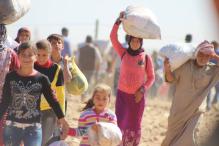Cale Salih was published in Just Security. The following is an excerpt.
Designated terrorist groups such as the Islamic State (IS), Boko Haram, and al-Shabab, have committed deplorable human rights abuses. Understandably, governments and affected populations want to bring them to justice swiftly and severely.
Through fieldwork, our research team studied Nigeria’s approach to Boko Haram, Somalia’s to al-Shabab, and Iraq’s to IS. Our aim was to understand how, alongside or in the aftermath of military operations, the governments in question are dealing with the large numbers of their citizens accused of collaborating with jihadist groups. The detailed results are outlined in The Limits of Punishment: Transitional Justice and Violent Extremism.
Our study found that too often nonviolent associates who may have been coerced into cooperating with designated terrorist groups – such as cooks, drivers, bureaucrats, even the fighters’ wives, for example – are being unfairly or disproportionately penalized. The result is a perpetuation of grievances that risks reigniting violence, and missed opportunities to deliver true justice and end the conflicts in which these groups thrive.
Rather than rigorously sorting through who did what, and under what conditions, authorities are frequently lumping together fighters, noncombatants, and relatives of group members, treating them all as guilty, dangerous, and deserving of heavy punishment.
The field of transitional justice is particularly rich with lessons for moving states away from blanket punishment and toward more strategic and effective approaches. To break cycles of conflict, local and international policymakers need to understand the limits of punishment as a policy tool, and instead begin to draw on the many basic lessons learned elsewhere to carry out effective demobilization and transitional justice.


